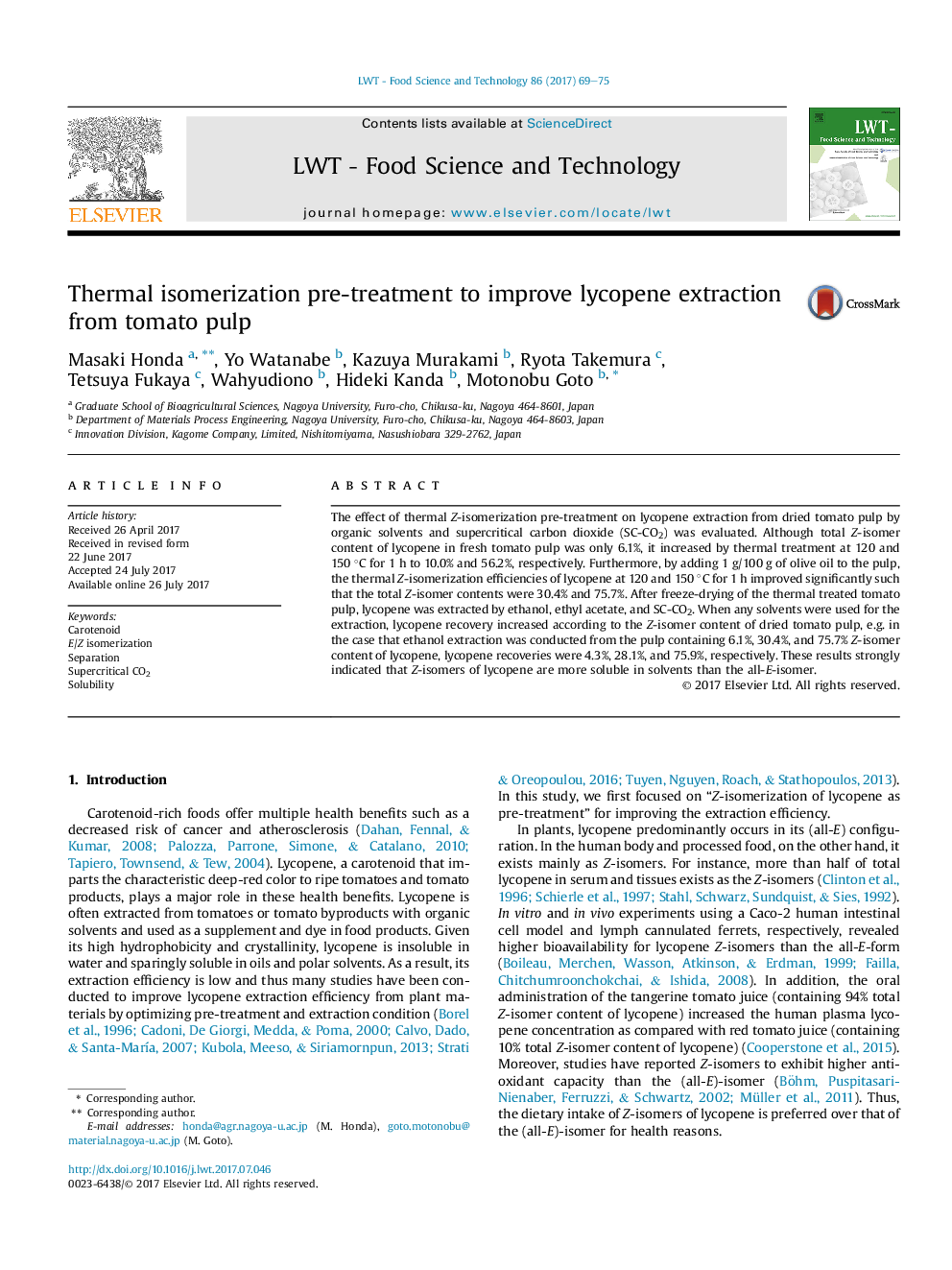| کد مقاله | کد نشریه | سال انتشار | مقاله انگلیسی | نسخه تمام متن |
|---|---|---|---|---|
| 5768661 | 1628513 | 2017 | 7 صفحه PDF | دانلود رایگان |
- The effect of the Z-isomer content on lycopene extraction was investigated.
- Lycopene was extracted from tomato pulp with organic solvents and supercritical CO2.
- The Z-isomer content of tomato pulp was improved by heat treatment with olive oil.
- Lycopene recovery was improved as an increase in the Z-isomer content of tomato pulp.
The effect of thermal Z-isomerization pre-treatment on lycopene extraction from dried tomato pulp by organic solvents and supercritical carbon dioxide (SC-CO2) was evaluated. Although total Z-isomer content of lycopene in fresh tomato pulp was only 6.1%, it increased by thermal treatment at 120 and 150 °C for 1 h to 10.0% and 56.2%, respectively. Furthermore, by adding 1 g/100 g of olive oil to the pulp, the thermal Z-isomerization efficiencies of lycopene at 120 and 150 °C for 1 h improved significantly such that the total Z-isomer contents were 30.4% and 75.7%. After freeze-drying of the thermal treated tomato pulp, lycopene was extracted by ethanol, ethyl acetate, and SC-CO2. When any solvents were used for the extraction, lycopene recovery increased according to the Z-isomer content of dried tomato pulp, e.g. in the case that ethanol extraction was conducted from the pulp containing 6.1%, 30.4%, and 75.7% Z-isomer content of lycopene, lycopene recoveries were 4.3%, 28.1%, and 75.9%, respectively. These results strongly indicated that Z-isomers of lycopene are more soluble in solvents than the all-E-isomer.
Journal: LWT - Food Science and Technology - Volume 86, December 2017, Pages 69-75
